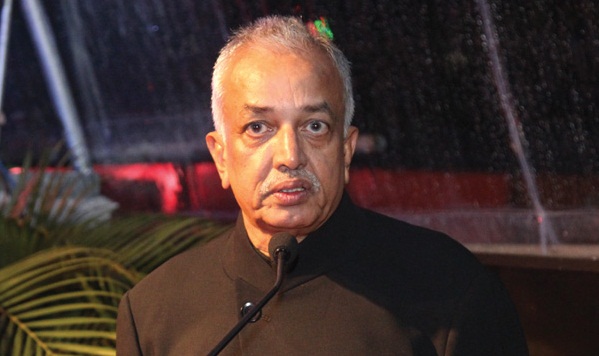“On the exports front we are launching a new national export strategy next month with the focus on competitiveness and product diversification, where we will be assisted by IE Singapore to restructure the Export Development Board,” Development Strategies and International Trade Minister Malik Samarawickrama said last week.
IE Singapore, which is Singapore’s international trade and investment agency, in a statement said that it would be providing technical assistance to both the Export Development Board (EDB) and the Board of Investment (BOI) in Sri Lanka which fulfil similar roles to the Singaporean agency.
“To support Sri Lanka in this drive, IE Singapore is working with BOI, EDB and the Ministry of Development Strategies and International Trade to share best practices to help Sri Lanka create a conducive business environment and support the internationalization of Sri Lankan companies,” IE Singapore said.
Samarawickrama said that this collaboration would help the government facilitate and encourage more exports from Sri Lanka.
“The aim is to build more and more exports from Sri Lanka, from high quality, high value food and beverages to leisure boats, IT services and electronic compliances,” he said.
The National Export Strategy was formulated following extensive stakeholder participation last year.
Sri Lanka’s exports in the first 11 months of 2017 had increased 9.4 percent year-on-year to US$ 10.3 billion according to the Central Bank, pointing towards a reversal of the negative growth trend experienced in 2015 and 2016.
However, exports as a percentage of GDP has been in a freefall, from 33.3 percent in 2000 to 12.7 percent in 2016.
To further support the government’s export push, a new National Innovation and Entrepreneurship Strategy will be launched soon to support tech upgrading, startups and collaborative innovation, Samarawickrama added.
“Without these we can’t go from middle income to high income,” he said.
Last year saw the budget speech placing greater emphasis on rekindling innovation, exports and the maritime heritage, and the setting up of eight task forces to improve the doing business climate in Sri Lanka, in particular to attract export-oriented foreign direct investments.
These reform initiatives appear to be hitting the nails on the head with respect to Sri Lanka’s inherent inward orientation and risk averseness despite being a trading island nation from the middle ages under local monarchs until the end of colonization under European powers in 1948.
Development economists have observed that many former colonies look at international trade and globalization distrustfully, since the Western powers had initially approached them in the guise of trading valuable commodities such as spices, before colonizing them.
However, some former colonies such as Singapore and Hong Kong had embraced free trade by becoming two of the most open economies in the world, and Singapore in particular transitioned from low income to a high-income economy within a generation.
Sri Lanka was embracing import substitution strategies in the 1970s when Singapore rapidly developing with market liberalization and despite the liberalization of the Sri Lankan economy in 1977, the country has moved back towards protectionist import substitution, with the World Bank two years ago classifying Sri Lanka as one of the most protected economies on earth.
Even countries which became intimate with communism such as Vietnam have moved more towards open economic policies than Sri Lanka, in the process attracting foreign direct investment volumes more than 10 times that of which Sri Lanka has attracted over the years.
The collaboration with Singapore follows a state-visit of Singapore’s Prime Minister to Sri Lanka, when a free trade agreement was signed between the two countries, and Singapore praised Sri Lanka for committing to liberal economic policies at a time when the anti-globalization narrative is taking center stage. Recently, Institute of Policy Studies Executive Director Dr. Dushni Weerakoon advised that in order to overcome the fertile ground in Sri Lanka to oppose progressive reforms, the government should package its policies skillfully to communicate their benefits clearly.
The government in the past has admitted its shortcomings in communicating its policy aims with the public, especially in rural areas.


































































































































































